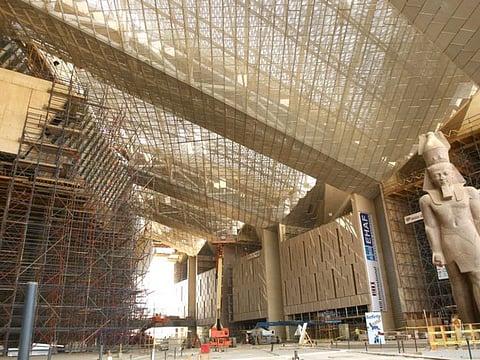Egypt’s project and construction sector is MENA’s rising star
Across Egypt, development is taking place at an unprecedented pace

The construction market in Egypt – be it the number of crane towers on the ground or the contract awards – will maintain its momentum of being the most active in the Middle East and North Africa region in 2022, even as the global economy strives to put the pandemic in the rear-view.
Several strategic factors are at play here - political stability, economic reforms, a relentless push by the government to deliver more projects (even bid for the 2036 Olympics), and a major uptick in crude oil prices. The government’s vision is singular: ‘deliver, deliver, deliver’ with the focus being on all the major construction market segments.
Infrastructure development tops the agenda, particularly the Cairo monorail and the high- and light-speed rail projects that have now reached various stages of implementation. Hill International is providing project management services for the monorail, which when completed in 2024 will transport at its peak about 45,000 passengers per hour. Built by Egypt’s National Authority for Tunnels, this will be the first monorail project in North Africa and also the longest monorail system in the world, at a combined length of 98.5 km and with construction of two lines.
While an upgrade of the Cairo International Airport is on the cards, plans are also gaining ground to develop smaller airports in the west of Egypt primarily to serve international tourists, besides catering to a projected growth in aviation traffic into post-Covid Egypt. Major marine port activity – particularly as an aftermath to COVID-19 – is planned also in the west (in Abu Qir, Ain Sokhna and Alexandria) and along the border with Libya, as Egypt plans to capitalize on its geographical location to be a critical link in the global supply chain industry. The pandemic has taught Egypt to build more ports and provide a platform for logistics hubs and services.
Already investments are pouring into this sector as entrepreneurs see emerging growth opportunities. Given its experience in carrying out port projects globally, especially with the Tangiers MedPort project in Morocco, Hill’s Cairo office will maintain its local availability to provide project and construction management services.
New capital, new real estate
The New Administrative Capital (NAC) City project in Cairo is off the ground with some government agencies due to relocate there. Hill also supports the development of some towers in the NAC that will introduce several other projects in the healthcare and education (universities) that are being built at the moment.
Growth is also forecast in the domestic real estate sector as demand is always on the rise with the economy putting forth a higher purchasing power. Further, Egyptians still believe in buying properties instead of saving cash in the bank, and that, in turn, is fuelling the growth for lower income housing.
Cairo is home to major investments from GCC developers in its real estate, retail and entertainment sectors and with crude oil prices reaching seven-year highs of nearly $100/barrel, expectations are rising for an increase in GCC funding into Egypt and other North Africa nations like Morocco, Tunisia and Algeria.
Also in 2022, Hill’s project – the Grand Egyptian Museum – is due for an official inauguration. The $1 billion facility has been built as the world’s largest museum of Egyptian art and culture hosting over 100,000 artefacts and with capacity to accommodate 4.8 million visitors per year.



